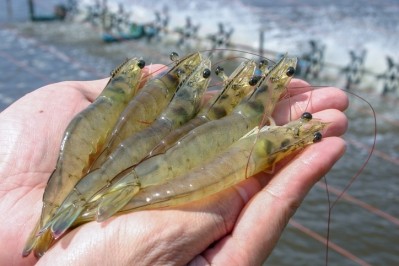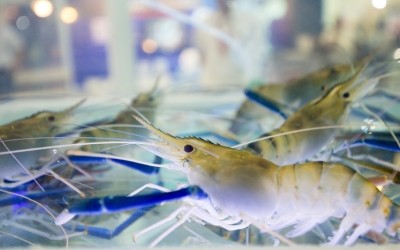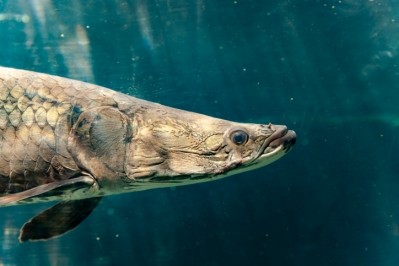Feed-X Challenge seeks innovative, sustainable aqua feed ingredients

The Feed-X challenge is not a competition but a program seeking alternative feed ingredients that could be assessed, selected for minimal risk of failure and scaled up to improve the sustainability of aquaculture production, said Marcela Navarro, CEO and co-Founder of Project-X Global.
“It’s not a competition with one winner and one tombstone,” she told FeedNavigator. “This is about addressing key challenges of our time.”
The program is accepting expressions of interest from innovators through May 10, according to program information. Applications forms are provided following the submission of an expression of interest and will be assessed by an independent panel of experts.
Although there is interest in working with more than aquaculture feed in the future, the industry was picked for the initial program because it demonstrated that it was willing, interested and able to work with novel feed ingredients to improve the sustainability of its production practices, said Navarro.
“Aquaculture as an industry is heavily dependent on manufactured feed and very interested in making changes,” she said. “So there [are] two elements that we consider here – the willingness and ability to bring change, not only at a company level but at the planetary level.”
The project is seeking to transform the global feed industry and is being done in partnership with Skretting, Climate-KIC, WWF and Ikea, according to program information. The goal is to alter 10% of feed production, or about 107m tons, to use sustainable ingredients developed from novel alternatives by 2025 – this stage of the project is focused on work with feeds for salmon and shrimp.
Challenge background and Project-X
Project-X started within the World Wildlife Fund (WWF) but “spun-out” of that organization in 2018 with the larger goal of accelerating the transformation of 10 industry value chains to address biodiversity and climate change from an industry perspective, said Navarro.
“From our perspective, our mission in Project-X is to transform the system and performance of the ten industries in the value chain most responsible for biodiversity decline and climate changing impacts in the next 10 years,” she said. “Hopefully as quickly as we can – we believe that there’s no time and we need to bring action and progress at the pace the planet needs.”
“We work on the premise that no single company can tackle industry-wide change on their own,” she added.
The organization seeks to bring together stakeholders from across the value chain including industry members, corporations, financiers, insurers, innovators, non-governmental agencies (NGOs) along with scientists and area experts to develop a collective response that addresses planetary issues and industry challenges, Navarro said.
“What we focus on is acceleration – we focus on compression of time, we focus on de-risking or mitigating the risk of sustainable alternatives, so we can unlock procurement at scale,” she added.
The Feed-X program is part of that larger effort.
The aquaculture industry – with a specific look at work with shrimp and salmon production – was of interest because there has already been investment in finding alternative ingredients, she said. This is an area where Skretting has been working for many years, which made them a natural partner for the pilot phase.
The organization is looking for innovations that provide sustainable alternatives both for the marine-based ingredients and the terrestrial elements, she said. “Since we address the planetary challenge and we are focusing on feed as a core element of food … the feed production needs to preserve the ability of abundance in nature, not distract from the abundance of nature,” she added.
A larger piece of the project is to develop a way to feed the increasing global population without “destroying the planet, and without harming the animals, [and] without creating social impacts that are unnecessary,” Navarro said.
In order to change 10% of feed production to use sustainable ingredients, there needs to be an evaluation of current alternative ingredients – both marine based and terrestrial, she said. “There needs to be a mitigated risk approach into identifying which sustainable alternatives perform on more than one level,” she added.
“It’s not enough to identify solutions that could be good economically and could feed the animal but that could be detrimental to the planet,” she said.
Ingredient submission and review
Following the review period, a selection of submitted ingredients will be selected and introduced to direct market testing, new financing opportunities and the chance to build a global profile, according to program information.
The program is seeking applications from small and large companies or innovators who have a market-ready, sustainable feed ingredient that could be used in shrimp or salmon feed, said Navarro.
“The invitation for sustainable alternatives comes from both existing corporates and market-ready innovators that have market-ready solutions or market-ready alternatives that can be scaled up – our focus is not on ideation,” she said. “Our focus is on the adoption of market-ready innovations, so we can address the planetary gap, we can address the industry challenges and we can make it very relevant to the lead corporates in this industry.”
Although the industry has been investing in research and development of alternative products, the program is focused on ingredients that have passed that stage of development, she said.
Submissions to the program will be assessed by a team of subject matter experts, she said. A selection of ingredients will then be chosen for further testing and analysis.
“The innovations that come from the process of selection will be independently curated by experts, [and] transparently validated by different subject matter experts in the process not only on the performance of the innovation, but on the scalability of it, and the readiness of it,” said Navarro. “This means that the successful innovators – again from a transparent, independent and objective process of selection – will be tested in a real-life environment, which creates, in market terms, the first market access demonstration.”















